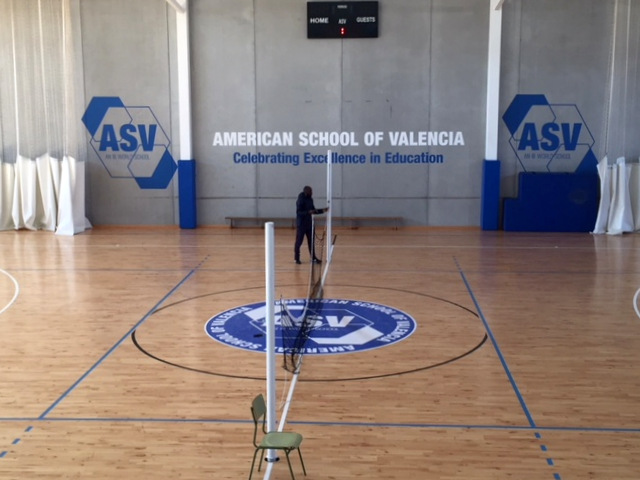What is the right of first refusal and withdrawal?
12 December 2022
Table of Contents
ToggleThe rights of first refusal and retraction, registered in article 25 of the Urban Leasing Law (LAU) and in article 1521 of the Civil Code, offer tenants the possibility of buying the house they have rented, before other people, if your landlord decides to put it up for sale.
It is, therefore, a “preferred” option to acquire the property that we have for long-term rental.
Right of first refusal and withdrawal: definition
The rights of first refusal and retraction are quite similar. In fact, both can be exercised by the tenants of a home that has been put up for sale.
However, these are two legal figures with different applications: the first is executed before the sale of the property, while the second can be exercised even after a third party has completed the purchase.
After receiving the communication, tenants have a maximum of 30 days to respond to their tenant.
What is the right of first refusal
The right of first refusal obliges the owners of a rented property to notify their tenants of the sale of said property in order to offer them the preference of its acquisition at the same price and conditions as other buyers.
This notice must be made in advance, preferably by registered letter. This document must specify the sale price.
After receiving the communication, tenants have a maximum of 30 days to respond to their tenant.
What is the right of withdrawal
When the owner does not comply with the right of first refusal and sells a property or leased premises without previously notifying the tenant, the latter has 30 days to avail himself of the so-called “right of withdrawal”, for which, if he wishes, he can request the cancellation of the sale made.
Later, this tenant will have preference to acquire the house at the same price and with the same conditions for which it had been sold to the third party.

Who can exercise this right?
The right of first refusal and withdrawal is a legal benefit of all tenants, unless a clause is signed in the lease contract for its resignation.
In the right of first refusal, it is the owner who has the legal obligation to communicate the sale and its conditions.
The right of first refusal and withdrawal is a legal benefit of all tenants, unless a clause is signed in the lease contract for its resignation.
In the right of first refusal, it is the owner who has the legal obligation to communicate the sale and its conditions.
Regarding the right of withdrawal, it may be exercised:
-If the owner signs the sale without informing his tenant in advance.
-If the communication omits details and conditions of the sale.
-If the owner sells the property at a price lower than that offered to the tenant to exercise the right of first refusal.
On the other hand, and although the rights of first refusal and withdrawal are undeniable, there are two cases in which they are not applicable:
- The apartment or property is sold jointly with other properties that belong to a single property.
- All the apartments and premises belonging to a single property are sold to a single buyer.
What happens if I request my right of withdrawal when a home has already been sold?
According to the Civil Code, when the right of withdrawal is appealed, the tenant must not only pay the price agreed in the sale: he must also assume the contract expenses and any other legitimate payment (notary, registration, etc.) to compensate the first buyer of those expenses that, in good faith, have been made in the acquired home.
The objective of this specification is to protect all parties involved in this type of operation, so that the tenant, when exercising his right, does not cause harm to the original owner of the home or to the third party who made the purchase.
Who benefits from the right of first refusal and withdrawal?
The right of first refusal and withdrawal establishes a preference system where the protection of the buyer’s interests is above the owner’s freedom of use.
This does not mean, far from it, that the owner does not have the possibility of choosing or that he loses money.
It simply indicates that the current tenant of a property assumes the right to be the first to purchase it.
On the other hand, and although the right of first refusal and withdrawal is normally associated with the private sphere, the Administrations can also exercise it for reasons such as the execution of urban plans or the guarantee of a public housing stock in a municipality.
Knowing what it is and when the right of first refusal and withdrawal is applied is interesting, both for owners and tenants.
Are you thinking of putting your property up for sale? Contact us!
Related Posts
Write to us, and one of our premium home agents will get in touch with you.
Other properties

Buy
420.000€
Fantastic property for sale in the Ruzafa neighborhood
Valencia
V5238
114 sqm House
3
2

Buy
1.350.000€
Gorgeous renovated apartment: Mercado de Colón
Valencia
V5203
200 sqm House
4
3

Rent
1.500€
Fantastic apartment with large terrace in Massarrojos
Massarrojos
A735
102 sqm House
2
2

Buy
690.000€
Fabulous new construction townhouses in Rocafort
Rocafort
ON707
529 sqm
6
4

Rent
1.400€
New construction home for rent ready to move in
Valencia
A5337
82 sqm House
2
2

Buy
940.000€
Fantastic and bright large home in Jaume Roig
Valencia
V5228
284 sqm House
5
3

Buy
650.000€
Nice appartment with panoramic views on Avenida de Francia
Valencia
V5234
155 sqm House
3
2

Buy
1.350.000€
Awesome duplex next to Plaza de la Virgen
Valencia
V5140
210 sqm House
4
3

Rent
2.200€
Apartment with designer renovation for rent
Valencia
A5336
95 sqm House
2
2

Buy
4.500.000€
Spectacular luxury villa in Cala Granadella, Jávea
Jávea
V809
677 sqm
5
5

Rent
1.050€
Apartment in the heart of Valencia.
Valencia
A5268
80 sqm House
1
1

Buy
1.700.000€
Large luxury flat at L’Eixample
Valencia
V5232
267 sqm House
6
3

Rent
2.500€
Elegant home next to Plaza Ayuntamiento
Valencia
A5308
170 sqm House
4
2

Rent
1.000€
Reserved
Valencia
A5334
85 sqm House
2
1

Buy
750.000€
Elegant new build semi-detached houses in Campolivar
Godella
ON705
228 sqm
5
3

Buy
2.500.000€
Excellent property in Campolivar
Godella
V775
660 sqm House
4
4

Buy
590.000€
Fabulous apartment in San Francesc
Valencia
V5212
142 sqm House
3
2

Rent
3.700€
Magnificent villa for rent in Los Monasterios
Puzol / Puçol
A120
320 sqm House
5
3

Buy
1.150.000€
Elegant beachfront duplex in Amare Beach Denia
Dénia
V808
249 sqm House
4
3

Buy
2.900.000€
Exclusive and luxurious new construction
Puzol / Puçol
V169
840 sqm House
8
7

Rent
2.400€
Spacious and bright home next to the North Station of Valencia
Valencia
A5331
237 sqm House
4
3

Buy
460.000€
Gorgeous views, unique plot: Alfinach
Puzol / Puçol
S209

Buy
1.000.000€
Renewed 4 stories home in Alfinach
Puzol / Puçol
V267
300 sqm House
4
3

Buy
450.000€
Stunning New Build Townhouses in Campolivar
Godella
ON706
138 sqm
4
3

Buy
799.000€
Magnificent property with views of the Palace of Justice and Porta la Mar
Valencia
V5229
227 sqm House
4
2

Buy
382.000€
Newly renovated penthouse in Pechina area
Valencia
V5220
86 sqm House
2
1

Buy
420.000€
Exclusive property in Guillem De Castro St.
Valencia
V5173
85 sqm House
2
2

Rent
2.800€
Reserved
Valencia
A5135
133 sqm House
3
2

Rent
1.490€
Cozy apartment in Ruzafa
Valencia
A5299
61 sqm House
2
2

Rent
2.300€
Rented
Valencia
A5329
175 sqm House
3
2
Artículos Relacionados

Advantages of investing in luxury real estate
January 2, 2023
Leer más

International Buyer’s Guide: Acquiring Luxury Properties in Valencia’s Exclusive Urbanizations
July 21, 2023
Leer más

American School of Valencia: The best educational and life choice for your family
February 13, 2023
Leer más

The 6 best things of living in Valencia
May 9, 2023
Leer más

Discover the exclusive country club of Los Monasterios
May 19, 2023
Leer más

The Process of Buying Property in Spain for International Buyers: Key Considerations and Steps
October 11, 2023
Leer más

Investing in Luxury Real Estate in Valencia: A Golden Opportunity for International Buyers
July 10, 2023
Leer más

How to sell your inherited property at the best price: Tips and effective strategies
August 18, 2023
Leer más

What are the best areas in Spain to invest in real estate?
September 27, 2023
Leer más

Residency Benefits Through Real Estate Investment in Spain: Visa and Residency Permits for International Buyer
August 18, 2023
Leer más




